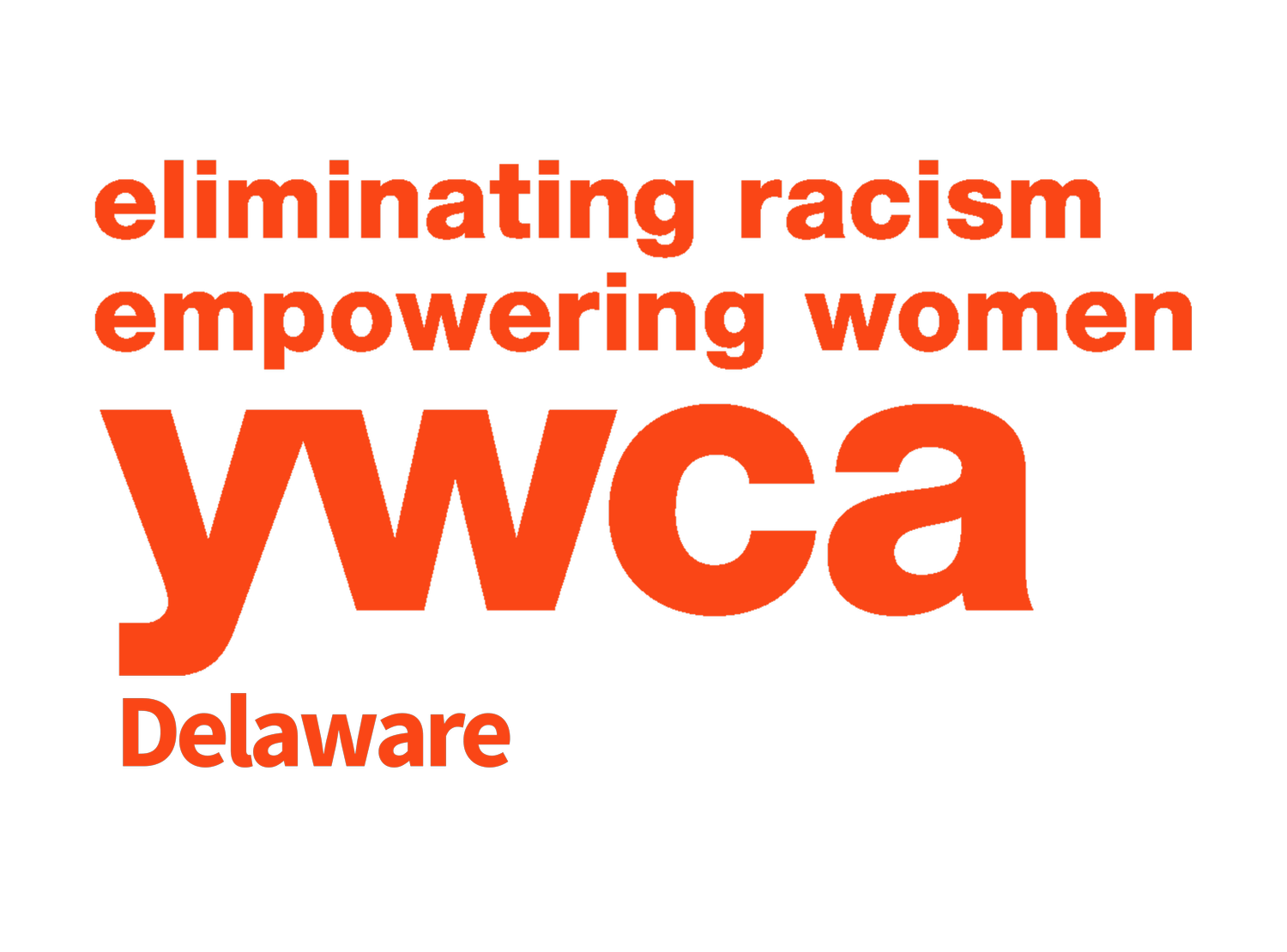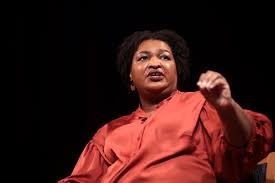
Celebrating Voting Rights Champions
Black women officially received the right to vote, 59 years ago, with the passage of the Voting Rights Act of 1965. This landmark legislation prohibited racial discrimination in voting and aimed to overcome legal barriers that had historically disenfranchised African Americans, including women. Prior to the Voting Rights Act, many African American women faced discriminatory practices such as literacy tests, poll taxes, and intimidation tactics that effectively denied them the right to vote. Below are some incredible individuals who played significant roles in the fight for voting rights for all.
Stacey Abrams
“Voting is not an indulgence—it is a right and a necessity. The future of democracy will be shaped by our willingness to fight for it.”
-

Ida B. Wells-Barnett (1862-1931)
Ida B. Wells-Barnett was a journalist, educator, and civil rights activist who campaigned against lynching and fought for African American civil rights and women's suffrage. She co-founded the Alpha Suffrage Club in Chicago, which was one of the first Black women's suffrage organizations in the United States. Wells-Barnett's advocacy efforts included mobilizing African American women to participate in the suffrage movement and challenging discriminatory voting practices.
-

Mary Church Terrell (1863-1954)
Mary Church Terrell was a prominent African American activist who fought for civil rights and women's suffrage. She was a founding member of the National Association for the Advancement of Colored People (NAACP) and the National Association of Colored Women (NACW). Terrell advocated for women's suffrage and emphasized the importance of voting rights for African American women as a means of achieving social and political equality.
-

Mary McLeod Bethune (1875-1955)
Mary McLeod Bethune was an educator, civil rights leader, and advisor to President Franklin D. Roosevelt. She founded the National Council of Negro Women (NCNW) and was instrumental in advancing the rights of African American women. Bethune advocated for women's suffrage and encouraged African American women to register to vote and exercise their political power as a means of achieving racial and gender equality.
-

James Weldon Johnson (1871-1938)
James Weldon Johnson was a writer, diplomat, and civil rights activist who served as the first African American executive secretary of the NAACP. Johnson was a strong advocate for women's suffrage and worked to mobilize African American support for the suffrage movement. He believed that political empowerment through voting rights was crucial for advancing civil rights and combating racial and gender discrimination in American society.
-

Fannie Lou Hamer (1917-1977)
An activist and leader in the Civil Rights Movement, Hamer co-founded the Mississippi Freedom Democratic Party (MFDP). She fought against voter suppression and discrimination, famously challenging the all-white delegation from Mississippi at the 1964 Democratic National Convention.
-

John Lewis (1940-2020)
A civil rights leader and congressman, Lewis was a key figure in the struggle for voting rights. He played a crucial role in the Selma to Montgomery marches and was a prominent advocate for the Voting Rights Act of 1965.
-
Stacey Abrams (1973 - Present)
Stacey Abrams founded Fair Fight Action in 2018, an organization dedicated to promoting fair elections, combating voter suppression, and advocating for voting rights across the United States.
She has highlighted the impact of voter ID laws, polling place closures, and other barriers that disproportionately affect marginalized voters, working to raise awareness and push for legislative reforms.
As the founder of multiple organizations focused on voter registration and mobilization, including the New Georgia Project, Abrams has been instrumental in increasing voter turnout, particularly among communities of color and young voters. Her efforts have contributed to significant increases in voter participation in Georgia and beyond.
In 2018, Stacey Abrams became the first Black woman in the United States to be a major party gubernatorial nominee. Although she narrowly lost the election, her campaign energized a diverse coalition of supporters and brought attention to issues of voter suppression and inequality in electoral processes.
Abrams is also a published author and a respected thought leader on issues of democracy, voting rights, and social justice. Her books, including "Our Time Is Now: Power, Purpose, and the Fight for a Fair America," have been critically acclaimed for their insights into the challenges facing American democracy and the importance of civic engagement.
YWCA Delaware is Tracking the Following Voting Rights Legislation
SB 3
SB 3 is the initial step towards amending the Delaware Constitution to remove restrictions on absentee voting. Currently, Delaware has limitations on when someone can vote absentee (such as needing to be away on Election Day). This bill allows the Delaware General Assembly to create new laws that specify the circumstances, rules, and procedures for absentee voting.
The reason for introducing SB 3 stems from a recent Supreme Court decision in Albence v. Higgins, which highlighted issues with Delaware's current absentee voting laws. The bill also mandates that all absentee ballots must include a sworn statement confirming that the voter's decision was not influenced improperly.
To actually change the Delaware Constitution, SB 3 must pass through the legislative process twice: once now, and then again after the next general election by the subsequent General Assembly. Changing the constitution requires more than just a simple majority vote; it needs approval from at least two-thirds of the members elected to each house of the General Assembly.
SB 180
SB 180 aims to limit disenfranchisement by ensuring that individuals convicted of felonies lose their voting rights only while imprisoned or until pardoned. It aligns Delaware's laws with federal standards, removing the General Assembly's power to strip voting rights as punishment. The bill eliminates permanent disenfranchisement for specific felonies, prohibits making voting rights restoration contingent on monetary payments, updates the voting age to 18, and removes unconstitutional residency requirements and literacy tests for voting.
HB 320
HB 320 proposes a Constitutional Amendment to allow early in-person voting in Delaware. If passed, it would legally authorize 10 days of early voting before Election Day. This amendment also mandates that at least 21 early voting locations be established, with one located in each State Senate District across Delaware. Additionally, all security measures that apply to general election voting days, such as administrative rules and policies, would also apply to early voting days to ensure the integrity and safety of the voting process.
HB 293
HB 293 is aimed at ensuring that polling places in Delaware are accessible to voters with disabilities and elderly voters during elections. It acknowledges that despite existing federal and state laws protecting these rights, many polling locations in Delaware still lack proper accessibility features like ramps or accessible parking, which can prevent eligible voters from exercising their right to vote.
This bill, which is a substitute for House Bill No. 293, mandates that the Department of Elections must carefully select polling places that are accessible to voters with disabilities and elderly voters for all elections. It also specifies that these accessibility features must be available and maintained for every election, not just during specific instances.
Exceptions are allowed in cases of states of emergency or when no accessible polling place is available in a particular area. In such situations, the Election Commissioner must ensure that affected voters are provided with an alternative accessible polling place or alternative methods to cast their ballots, if requested in advance.
The substitute version of HB 293 narrows the definition of emergencies that could justify exceptions to natural disasters or other emergencies that make a polling place unsafe or unusable.
Additionally, the substitute bill includes a provision that allows any person who believes the Department of Elections has not complied with these accessibility requirements to file an administrative complaint with the Department.
YWCA Delaware's Racial and Social Justice (RSJ) program helps to transform communities by awakening consciousness, promoting inclusion and solidarity, and cultivating civic engagement in individuals and organizations to advocate for justice and inspire a movement.
Explore Our Journey to Freedom
Mile Markers
-
Courageous Leaders of the Abolitionist Movement
-
Pioneers and Leaders of YWCA
-
Civil Rights in America
-
Celebrating Voting Rights Champions
-
Spotlighting Reproductive Justice Advocates
-
Champions of Education Equality
-
Advocates Driving Criminal Justice Reform
-
Pioneers of Housing Justice
-
Youth Leaders of America

